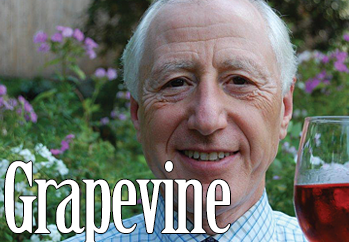Navigating the Decisions in the Pairing of Cheese and Wine
Opinion Advocates for ideas and draws conclusions based on the author/producer’s interpretation of facts and data.
 Matching wine with a particular food dish or menu is one of life’s simple pleasures. But we don’t enjoy wines solely with meals. Often, we are entertaining friends or enjoying wine as a precursor to a meal.
Matching wine with a particular food dish or menu is one of life’s simple pleasures. But we don’t enjoy wines solely with meals. Often, we are entertaining friends or enjoying wine as a precursor to a meal.
What to match with wine in these situations? Most of us opt for light accompaniments like olives, breads, nuts – and cheese.
This week we’ll explore matching cheeses and wines. Oftentimes, we tend to focus on a favorite wine or a favorite cheese, but don’t consider the compatibility of one to the other. The simple rule of thumb is contrasts. The creamier the cheese, the more acidic the wine. The more aged and mellow the cheese, the less acidic the wine.
Let’s break this down to its basic components. First, the basic style of cheeses, and second, their compatibility with basic styles of wines.
The Cheeses. The production of cheese is highly parallel to the production of wine.
First, just as with wines, cheeses are made from different base products: cow, sheep and goat milk.
Second, fermentation is necessary to transform the base product into a unique product, which, just like wine, is constantly changing as it ages.
Third, the length of aging greatly influences the end product. A young cheese tends to be soft in texture and simple in structure; an aged cheese tends to be harder in texture and more complex.
Fourth, the cheesemaker may choose to influence a cheese with external agents: oak for wine; herbs and spices for cheese.
Fifth, terroir plays an important role in cheesemaking. Locale and grass diet will impart a particular flavor or aroma to a cheese.
The combination of all of these factors, in the hands of an experienced affineur (French for cheesemaker), produces a cheese that has its own personality but also has a common thread with other similarly produced cheeses – just as with wines. For example, we have a sensory perception of a Brie cheese – soft, creamy, tangy flavor; however, a French Brie is quite distinct from an American Brie.
Compatibility of Cheese With Wine. There are no strict rules for matching cheese with wine; it’s a matter of your individual palate. Experiment with different combinations. What you’ll discover is that, contrary to popular belief, white wines tend to be a better match for a broader range of cheeses than red wines.
White wines, especially those with high acid levels, will counter the creamy texture and flavor of many cheeses, whereby red wines tend to be muted or sublimated by this creaminess. Why? Many cheeses tend to be young and will coat your tongue with milk fat. Acidic white wines will cut through the fat and allow your taste buds to better appreciate the wine and the cheese. Lower-acid red wines just don’t cut it. (But, when you’re matching a big muscular cheese, you will invariably want a big muscular red wine.)
Using these rules of thumb, consider Sauvignon Blanc with goat cheeses; Chardonnay or sparkling wine with Brie or Camembert; Cabernet Franc or Spanish Rioja with semihard cow’s milk or aged sheep’s milk cheeses; Cabernet Sauvignon with hard cheeses such Parmigiano Reggiano; and Port or Sauternes with blue cheeses.
Also experiment with dessert wines. You’ll find them to be extremely versatile in complementing or contrasting well with a broad range of cheeses.
My favorite pairings? Here are two of them:
Nettle Meadow Kunik (New York; triple crème blend of cow and goat) with a French sparkling wine.
Kaserei Tufertschwil Challerhocker (Switzerland; semi-hard cow) with a French or Oregon Pinot Noir.
With so many choices of high-quality cheeses becoming available, it may seem daunting at first to match a particular cheese with a wine. My advice: just as you rely on your local wine merchant to help select the appropriate wine for a particular food, seek out your local cheese monger to help select a cheese to match with your favorite wine.
(Second Mouse Cheese Shop in Pleasantville is my favorite.)
Nick Antonaccio is a 47-year Pleasantville resident. For over 30 years, he has conducted numerous wine tastings and lectures. He offers personalized wine tastings for consumers and businesses. Nick’s credo: continuous experimenting results in instinctive behavior. You can reach him at nantonaccio@theexaminernews.com.
